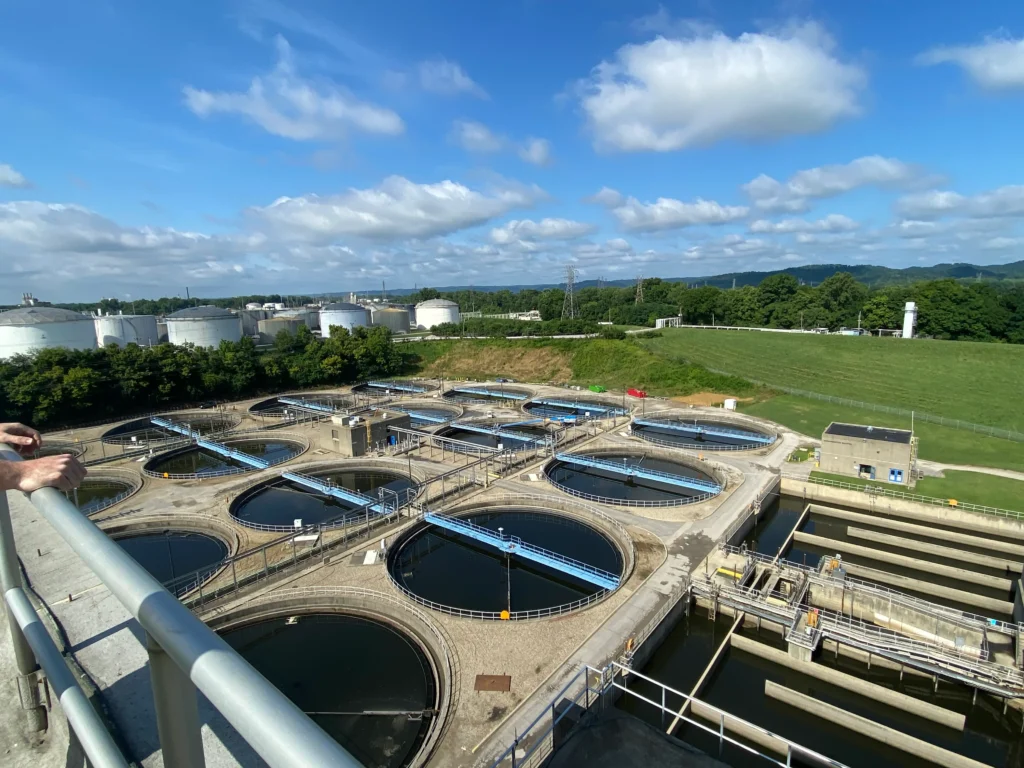
Louisville and Jefferson County Metropolitan Sewer District – Morris Forman Sewage Treatment Plant

Louisville and Jefferson County Metropolitan Sewer District – Morris Forman Sewage Treatment Plant: An In-depth Look
Introduction
Located in Louisville, Kentucky, the Louisville and Jefferson County Metropolitan Sewer District (MSD) plays a crucial role in maintaining the health and environmental sustainability of the region. One of the standout facilities under the Louisville MSD’s jurisdiction is the Morris Forman Sewage Treatment Plant (MFSTP). As Louisville’s largest treatment plant, Morris Forman is tasked with handling the wastewater needs of Jefferson County, making it an essential infrastructure asset for the community.
Population Served
The Morris Forman Sewage Treatment Plant serves a population of over 800,000 residents within the Louisville-Jefferson County area. This number encompasses both the city of Louisville and its surrounding metropolitan areas. The population served by the Morris Forman facility has been steadily increasing, reflecting the area’s growth and development. This puts additional pressure on the facility to efficiently manage larger volumes of wastewater while maintaining service quality standards.
Wastewater Volume and Treatment Capacity
On any given day, the Morris Forman Sewage Treatment Plant processes between 90 to 100 million gallons of wastewater. However, its design allows handling up to 150 million gallons per day (MGD) during peak times, primarily due to pump stations and combined sewer overflows. This capacity ensures that the plant can manage surges in sewage flow, which often occur during heavy rainfall or significant inflow and infiltration events. The treated water is then safely returned to the Ohio River, ensuring the health of local water bodies and compliance with environmental regulations.
Treatment Process
The treatment process at Morris Forman is multi-faceted, incorporating both primary and secondary treatment stages:
-
- Primary Treatment: This initial stage involves the removal of large solids and debris from the wastewater. Screening and sedimentation tanks are used to settle out materials that can be physically separated.
-
- Secondary Treatment: During this phase, the remaining wastewater, having passed through the primary treatment, undergoes biological treatment. Microbial organisms break down organic matter, significantly reducing biological oxygen demand (BOD) and suspended solids.
-
- Disinfection: The final stage involves disinfecting the treated water, typically through chlorination or ultraviolet (UV) light treatment, to eliminate any remaining pathogens before the water is discharged into the Ohio River.
Recent Local News
In recent years, Morris Forman has been highlighted in local news for several reasons, ranging from project updates to environmental incidents:
-
- Odor Control Enhancements: Community members living near the plant have expressed concerns about odors emanating from the facility. In response, MSD has undertaken significant investments into enhancing its odor control systems, including the installation of carbon filters and bio-scrubbers to mitigate unpleasant smells.
-
- Emergency Overflows: In 2020, the plant faced challenges when heavy rains led to an overwhelming inflow of water, triggering combined sewer overflows (CSOs). MSD has since been actively working on solutions including the construction of underground storage basins to hold excess water temporarily and prevent direct overflows into the river.
-
- COVID-19 Response: During the pandemic, the plant played an unexpected role in public health. Scientists studied the wastewater to monitor the presence of the COVID-19 virus, helping to assess infection rates in the region. This kind of wastewater epidemiology provided critical data for public health officials.
Key Projects
Morris Forman is part of several key projects aimed at enhancing its treatment capacity and addressing environmental concerns:
-
- Waterway Protection Tunnel: A massive underground tunnel, stretching two miles and reaching depths of up to 200 feet, is being constructed to store stormwater and prevent sewer overflows. This project is anticipated to significantly reduce CSOs, enhancing the plant’s efficiency and protecting local waterways.
-
- Pond Restoration Projects: One of the innovative approaches MSD has undertaken includes the restoration and creation of natural pond systems to manage stormwater naturally. These ponds not only help in reducing surface runoff but also create recreational and ecological benefits for the community.
-
- Green Infrastructure Initiatives: MSD has been innovative in integrating green infrastructure components into its urban planning. Projects include rain gardens, permeable pavements, and green roofs which help absorb rainwater and reduce the load on sewage treatment plants during heavy rains.
Community Engagement
Community engagement plays a vital role in the operations of the Morris Forman Sewage Treatment Plant. MSD has several initiatives aimed at fostering transparency and building public trust:
-
- Public Tours and Open Houses: Periodically, MSD organizes tours of the Morris Forman facility. These tours are designed to educate the public about the processes involved in wastewater treatment and the challenges faced by the facility. Open houses often come with informational sessions where community members can ask questions and provide feedback.
-
- Educational Programs: MSD collaborates with local schools and universities to promote environmental education. Programs often include visits to the plant, hands-on activities, and lectures aimed at fostering a new generation of environmentally conscious citizens.
-
- Community Advisory Boards: To ensure that residents’ voices are heard, MSD maintains community advisory boards. These boards work closely with MSD officials to address local concerns, offer insights into community needs, and facilitate a two-way communication channel between the district and its residents.
-
- Online Resources and Updates: MSD maintains an active online presence, offering educational materials, project updates, service alerts, and water quality reports. This transparency helps in keeping the community informed and engaged.
Conclusion
The Louisville and Jefferson County Metropolitan Sewer District’s Morris Forman Sewage Treatment Plant stands as a testament to the vital role infrastructure plays in public health and environmental stewardship. Serving a growing population, the plant’s capabilities in handling vast volumes of wastewater are continuously being upgraded to meet new challenges. From capacity enhancements to innovative green projects, Morris Forman is at the forefront of wastewater management. Community engagement and transparency remain cornerstones of its operations, ensuring that public trust is maintained and environmental integrity is upheld. In a rapidly urbanizing world, facilities like Morris Forman will continue to be crucial in shaping resilient, sustainable, and healthy communities.

